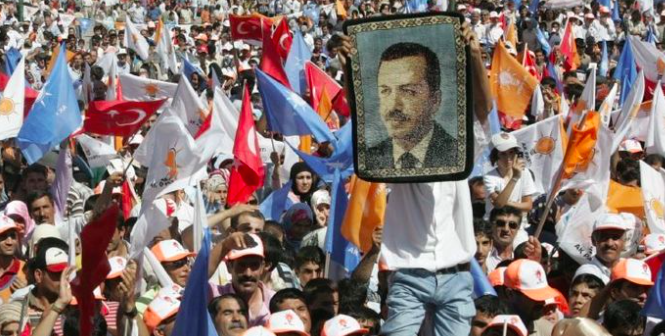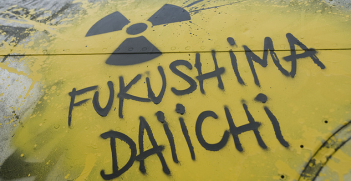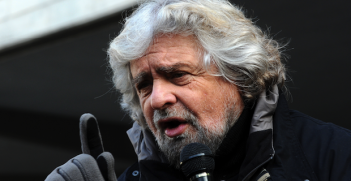Turkey's Election: History in the Making?

Turkish voters are going to the polls on 7 June, in arguably the most significant election since the AKP (Justice and Development Party) came to power in 2002.
For the ruling AKP and its president Recep Tayyip Erdogan, this is not just about seeking another term. It is the vote to change the way Turkey is ruled since the republic was founded by Ataturk and his friends. President Erdogan nominated the presidential system as the next step forward in Turkey, claiming the current parliamentary system is too cumbersome and slow to make quick decisions. This election has therefore partly turned into a referendum on whether Turkey should change to a presidential system or not. The stakes are so high that the supposedly impartial and apolitical President of the Republic felt he needed to go on a tour of election rallies in key provinces, believing the current prime minister Davutoglu, with his gentle look and style, was not making the impact needed with the electorate. As recently as 23 May, Erdogan reportedly acknowledged that there is a frustratingly high degree of complacency among the AKP supporters and an unusually high number of uncommitted voters, which may impact on the result. As little as 5% uncommitted voters may in fact ruin Erdogan’s plans.
The AKP, currently holding 312 seats in a 550-seat parliament, is aiming at 367 seats (or about 52% of votes), which would allow it to change the constitution and introduce the presidential system and other ideological changes in their own right. A result of 335 seats would not be as strong a result, but still enough to allow the party to take the matter to a referendum. However, the AKP is reluctant to take this step, given that not everyone in their own ranks is convinced that the presidential system is the right thing for the country. The co-founder of the AKP, and previous president, Abdullah Gul, publicly stated he did not think Turkey needed a presidential system, a major disagreement on such a significant issue with his comrade Erdogan.
The element to watch in this election is probably not the AKP but the performance of the Kurdish dominated HDP (Peoples’ Democracy Party). If the HDP, currently sitting around 9% in the opinion polls, does better than 10% of the vote, which is the threshold to make it into the parliament, Erdogan’s hopes of introducing the presidential system will be practically all but over. There may even be a risk that AKP may struggle to achieve 275 seats to form a government in its own right, due to the election system in Turkey. That’s why a great deal of effort is being exerted by AKP campaign directors to remind the public of the bickering and backstabbing in previous coalition governments, as 13% of the voters have in fact never experienced a government other than the AKP’s single party rule.
The other two major opposition parties, including the centre left CHP (Republican People’s Party) and the nationalist MHP (Nationalist Action Party) appear quite upbeat, although nowhere near achieving an absolute majority. Depending on the HDP result, there is a chance that they may form a coalition and come to power. They are both secular parties and are committed to the parliamentary system as it is and oppose a presidential system, arguing it may turn into a middle eastern style dictatorship. They also oppose many of the structural changes in the education system and legal system initiated by the AKP, and differ significantly with the interventionist international relations policies adopted by AKP in Syria and other regional countries. They appear to have increased their votes in the opinion polls on the back of a tired public after 13 years of AKP rule and serious corruption claims against senior ministers of the AKP, including Erdogan’s family members. Their headway is also due to some new economic and welfare promises and policies, which appear to have caught even the AKP party off-guard and appear to be registering with the unemployed, pensioners and low-income households. In fact, for the first time in 13 years, the election is also being fought on policies as well as concerns about the social engineering policies of Erdogan that many seculars believe are designed to undermine the democratic, secular life and institutions in one of the most significant Muslim-majority countries in the world.
This election in the fragile Turkish democracy is critical. Erdogan is on record, in an interview published in the Turkish daily Milliyet on 14 July 1996, six years before he came to power, saying that democracy was a means, not an end, for his party, and they would get off when they reach their destination. His obsession with the glory days of the Ottomans and resurrection of the Ottoman Empire caused a large section of the Turkish public to be suspicious of him and his party. So this election is the one that counts for Turkey as the West understands it, and for the Middle East.
Sedat Mulayim is the Program Manager for The Translating and Interpreting at the School of Global, Social and Urban Studies at RMIT University. This article can be republished with attribution under Creative Commons Licence.





